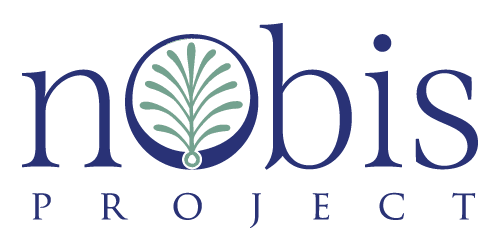by Debbie Bandy, English Teacher, Charleston, S.C.
“Largest Slave Sale in Georgia History”
The Nobis World program, Savannah Ga & The Lowcountry: Preserving African-American & Gullah-Geechee Culture, created a safe place for educators from around the country to share our stories and discuss difficult issues. I want to remember these lessons in my own teaching.
One of the videos we watched before our trip was Slavery By Another Name, a PBS documentary.
“Slavery by Another Name is a 90-minute documentary that challenges one of Americans’ most cherished assumptions: the belief that slavery in this country ended with the Emancipation Proclamation. The film tells how even as chattel slavery came to an end in the South in 1865, thousands of African Americans were pulled back into forced labor with shocking force and brutality. It was a system in which men, often guilty of no crime at all, were arrested, compelled to work without pay, repeatedly bought and sold, and coerced to do the bidding of masters. Tolerated by both the North and South, forced labor lasted well into the 20th century.”
Before watching this video, I thought that slavery (though not prejudice and injustices) ended with the Emancipation Proclamation, and I was shocked by the brutality faced by black citizens, especially black men. This coercive system had a monetary incentive. No white landowner now wanted to pay wages to people that used to be property. That financial reason faded over time, but the practice of injustice towards black men became institutionalized, and most American (if they ever knew) forgot its origin. Black men were targeted for incarceration without cause, and the result continues to be disproportionate numbers of black men behind bars.
Modern targeting of black men by law enforcement was given a voice by one of the participants in the Nobis program in Savannah this summer. This man holds an administrative position in an elite Northern private school. As we were talking about power and privilege, he shared his discussion with his sons about how to interact with the police. I have had the same talk with my sons: always be respectful and tell the truth. His talk, however, included telling his sons to put their hands where they are clearly visible and make no sudden moves.
Then came the murder of Michael Brown this summer in Ferguson, MO. The police response could have been filmed in black and white; their methods were straight out of 1963 Birmingham. Some of the responses by white residents were, too. The brutality against black men seems to have no end point.
My experience with the Nobis World program challenged me to think differently when I watch the evening news. And I now ask myself, “What can I do as a white teacher in a predominately white, private school in Charleston, SC?” I have made two decisions at this point. I joined the NAACP and have put a bumper sticker of my support for this organization on my car and will attend meetings to see what part I can play in the work in Charleston. I also want my 8th graders to work with the Avery Research Center (http://www.averyinstitute.us/) in writing a guidebook for some of the many antebellum houses within a mile of our campus. Their research will include information about the builders of these houses: enslaved people with specific skills such as carpenters, ironworkers, and builders. We will also include research about the white plantation owners and merchants who financed these homes, but I hope my students will gain a fuller and deeper history of the area than they typically receive. It is only when we start having these discussions about power, history and relationships that we can begin to move forward in creating the change we wish to see.


0 Comments